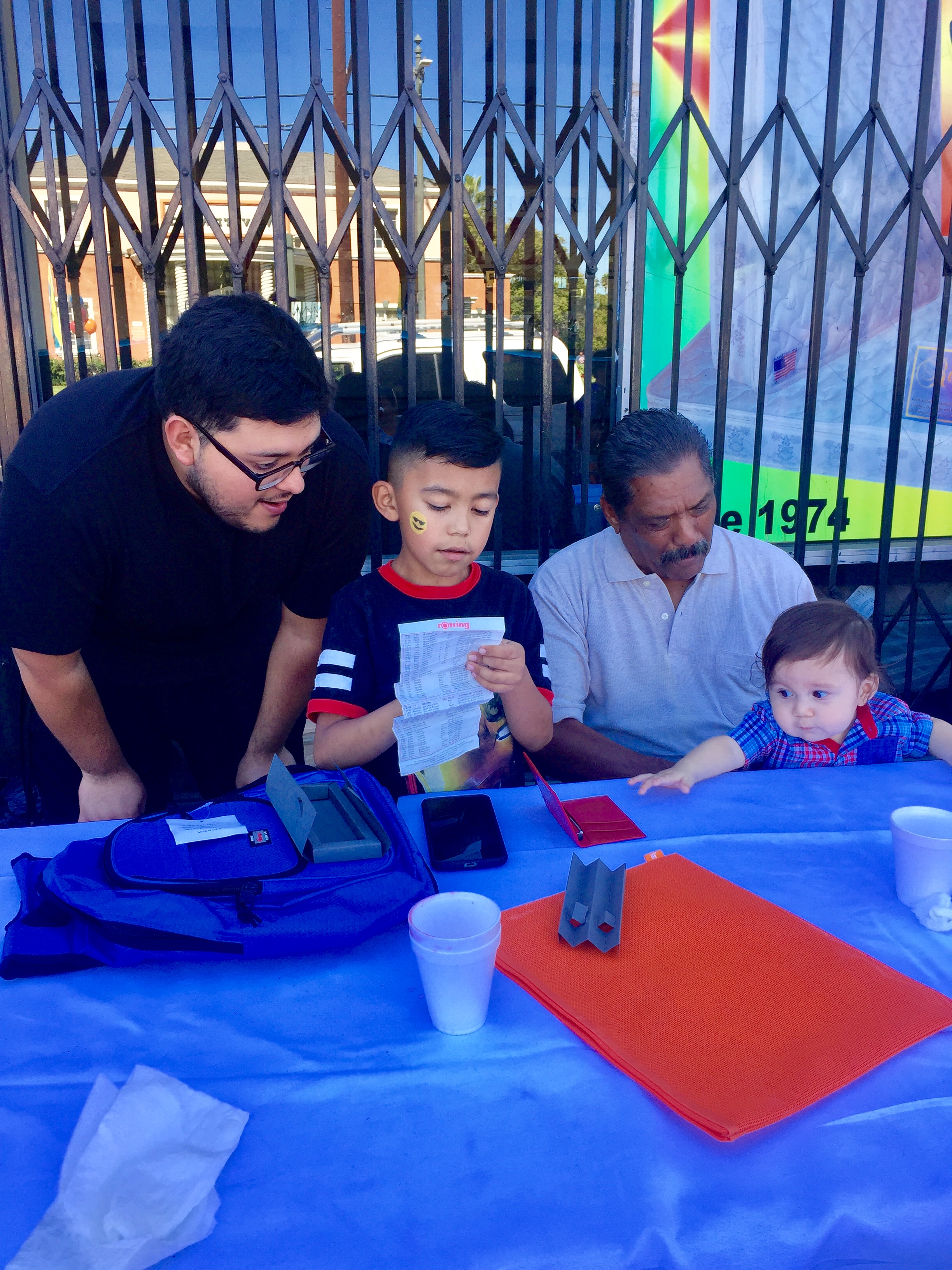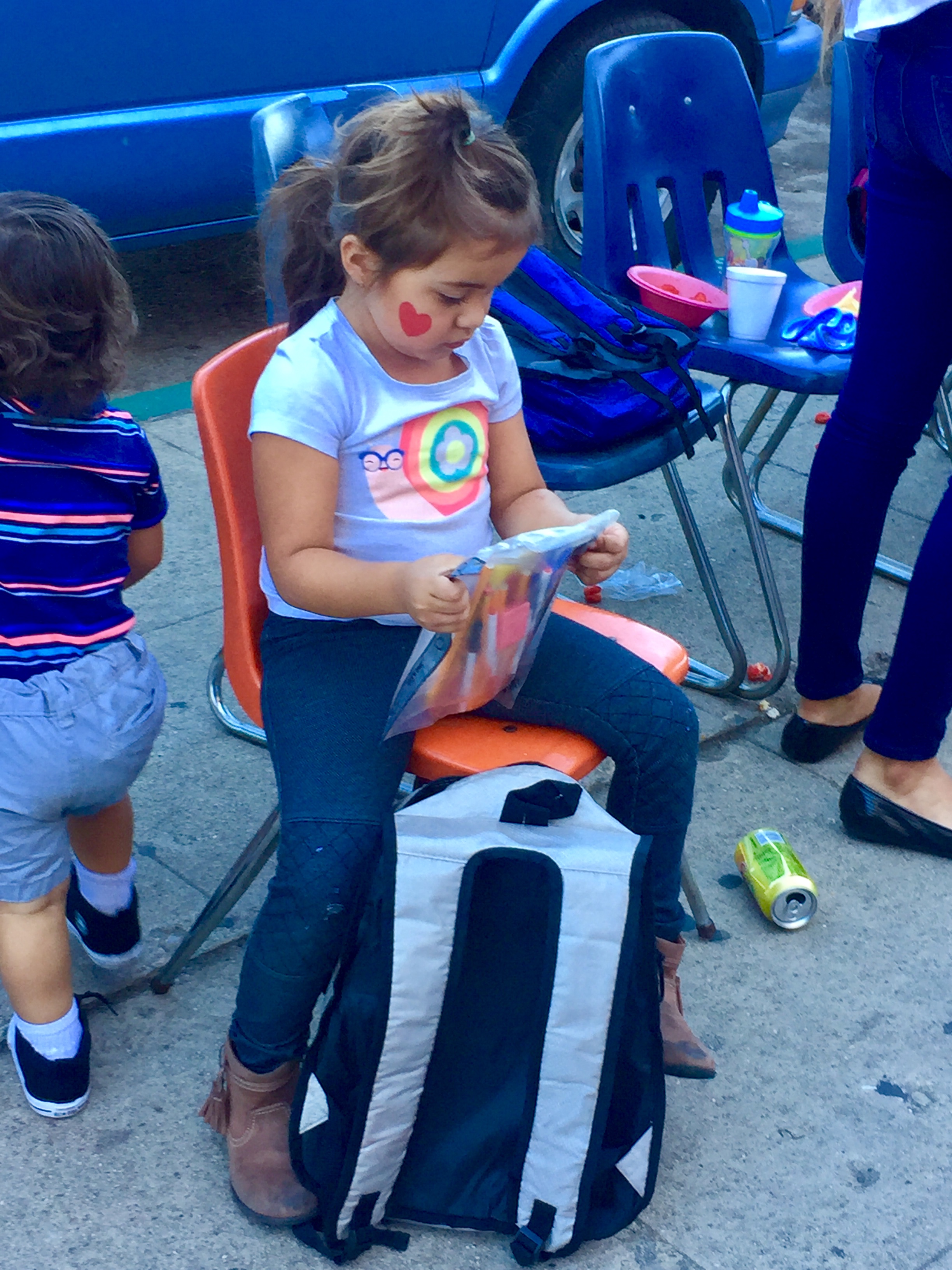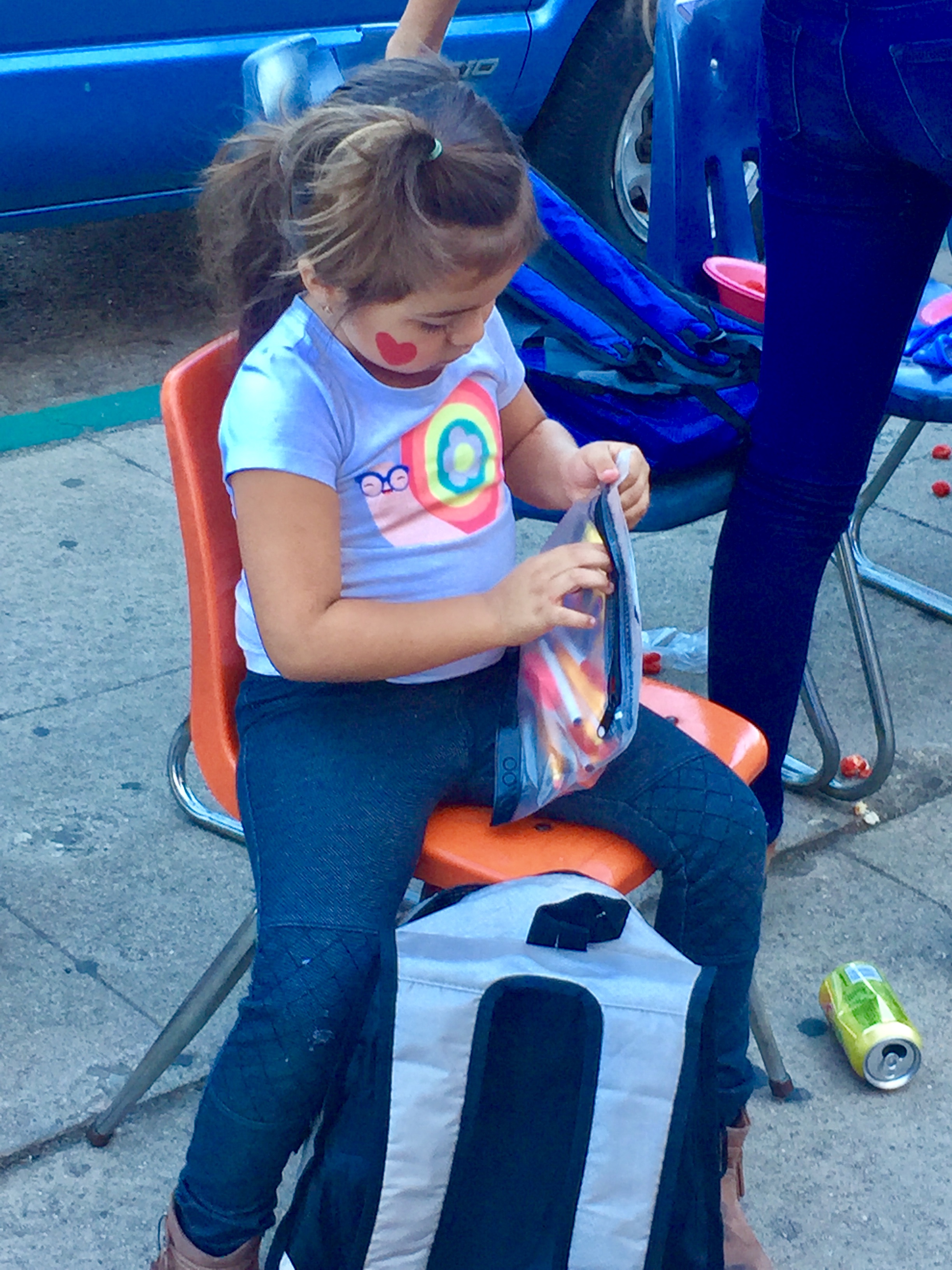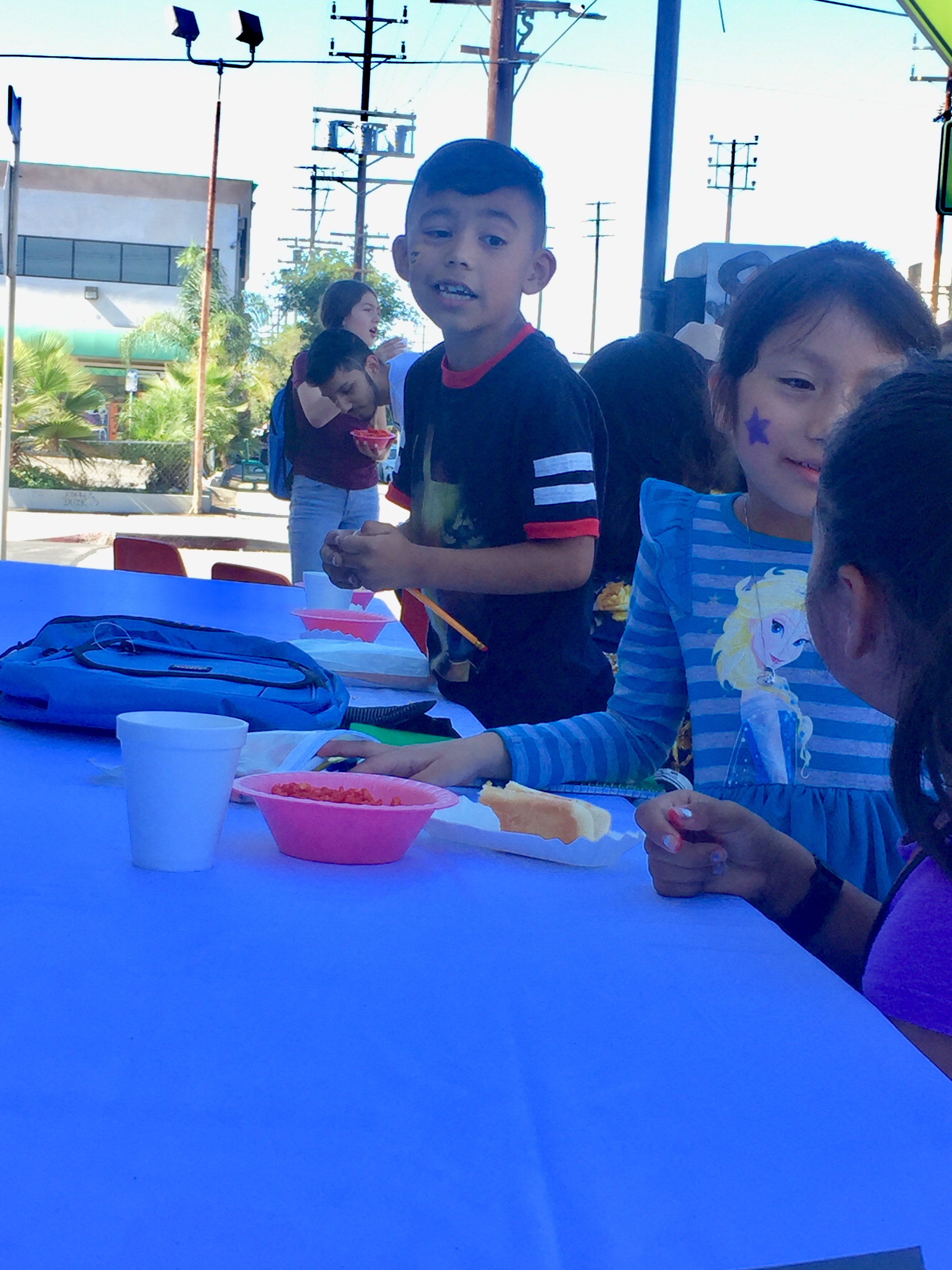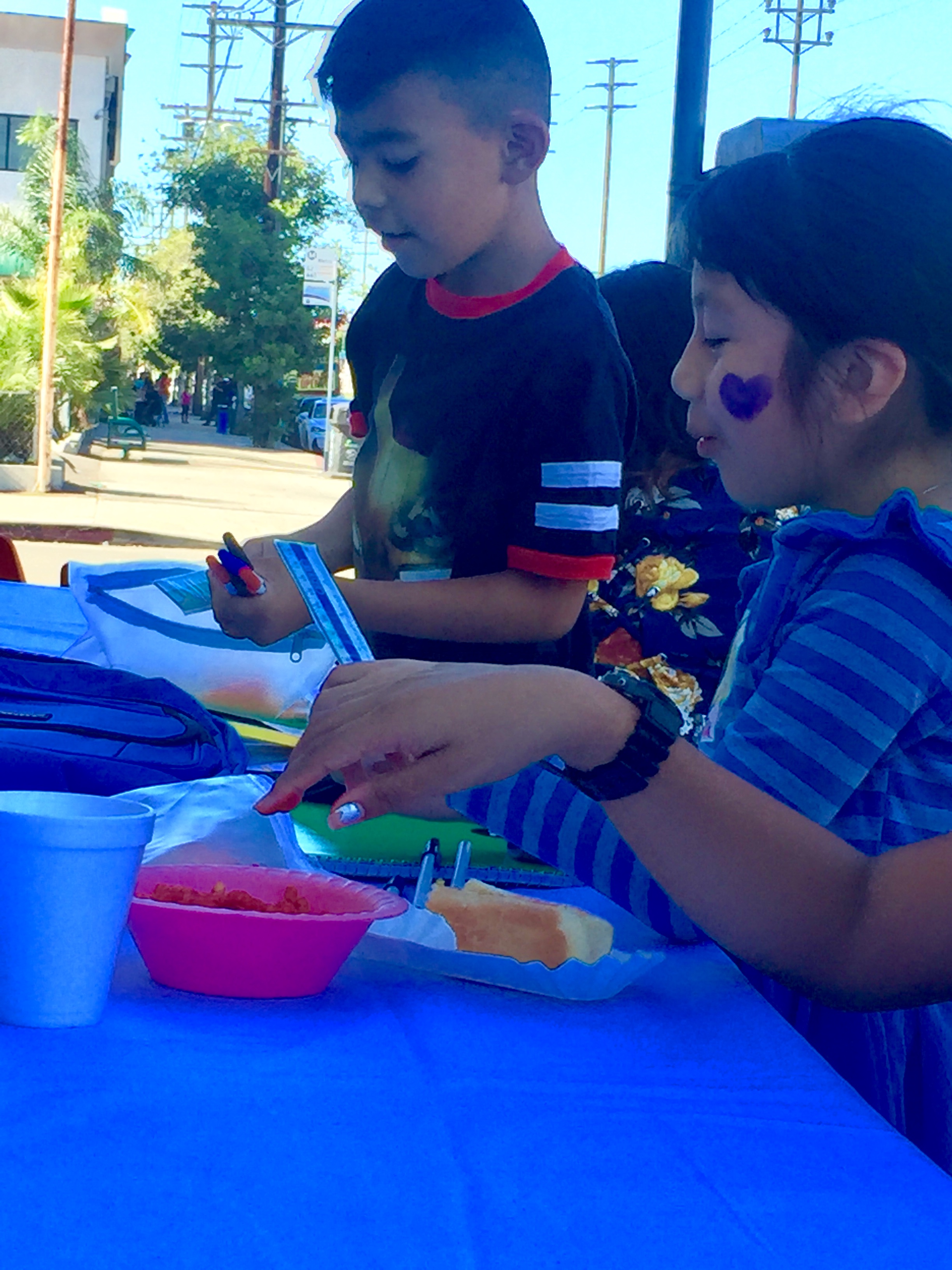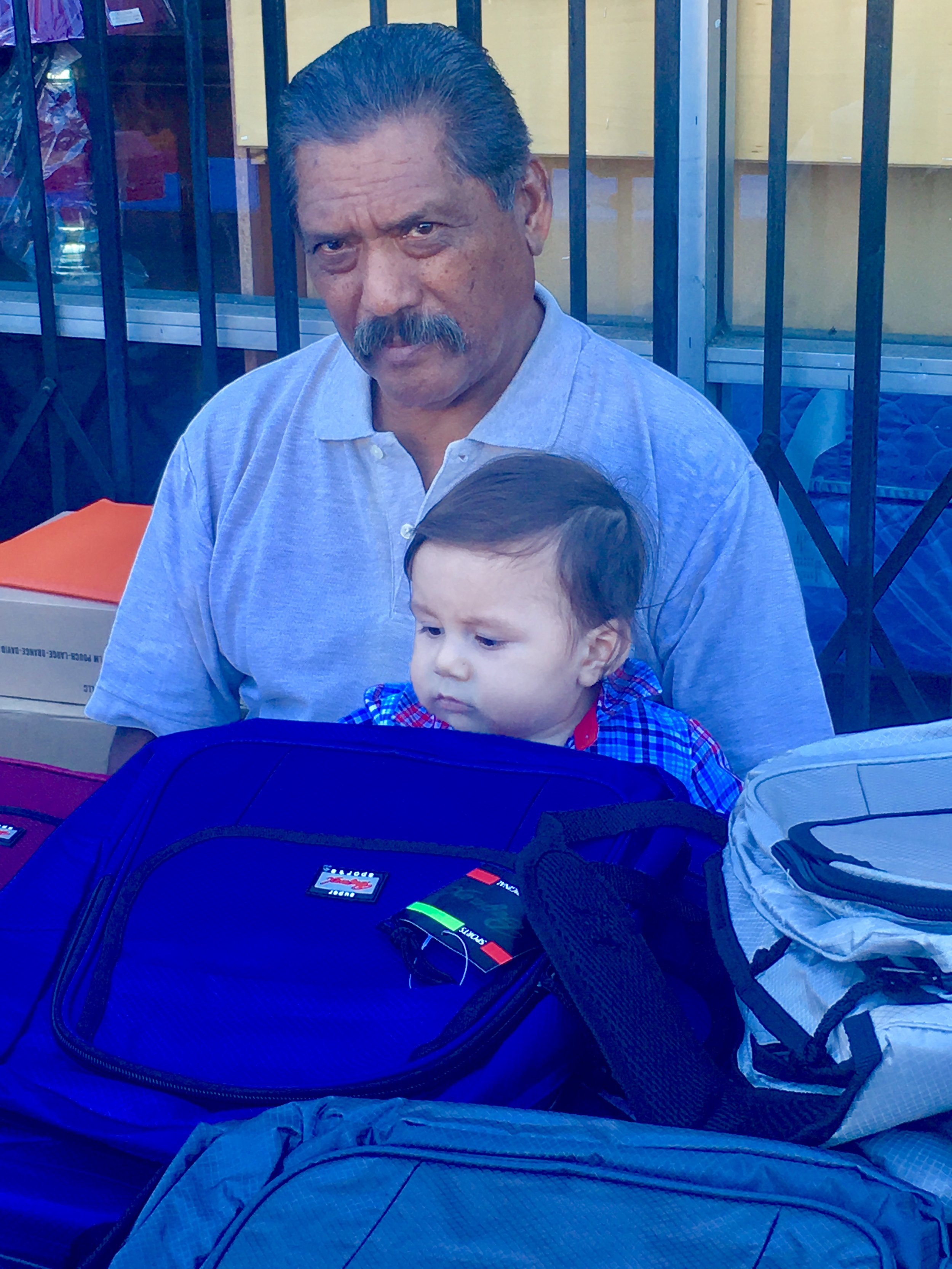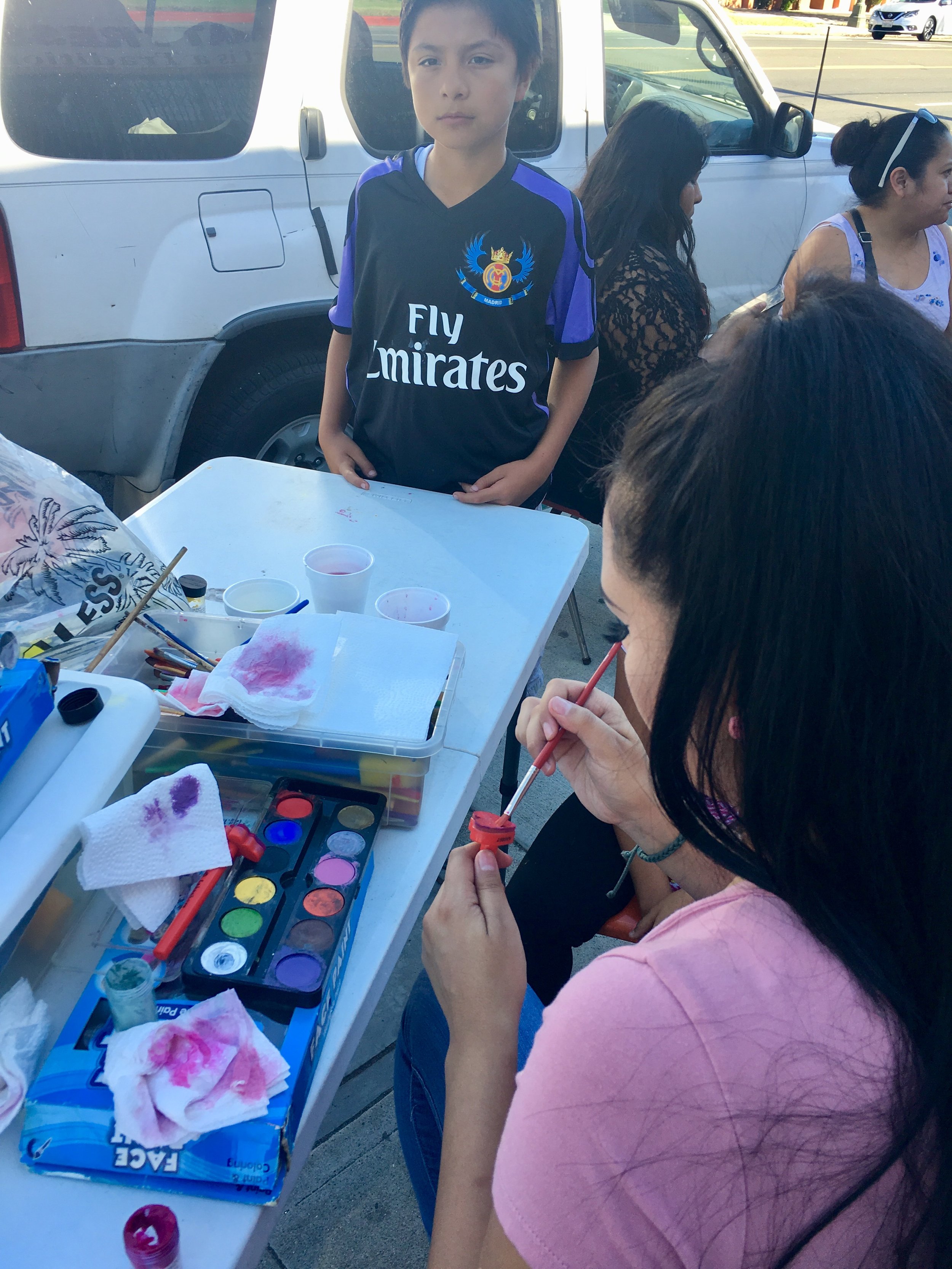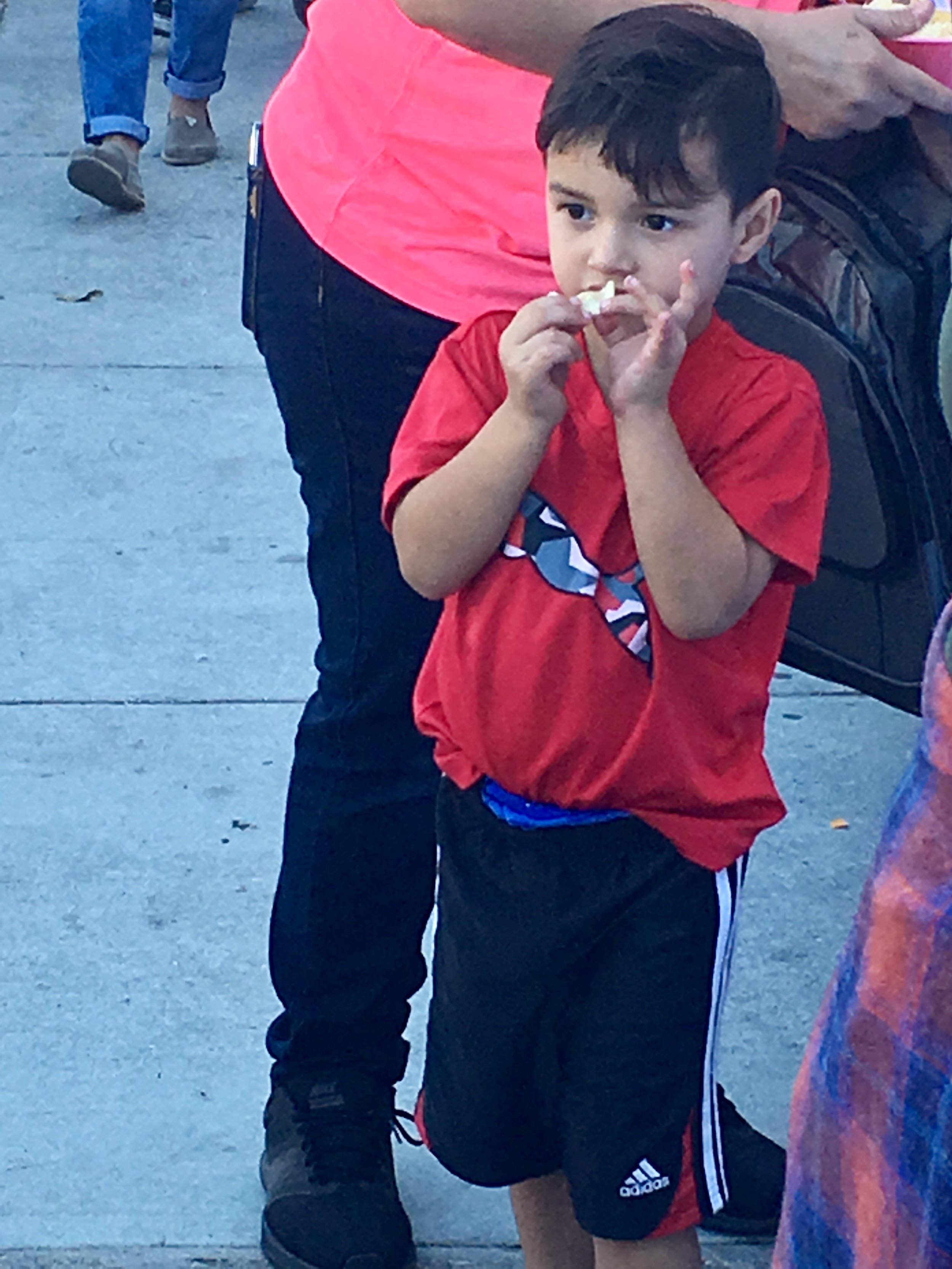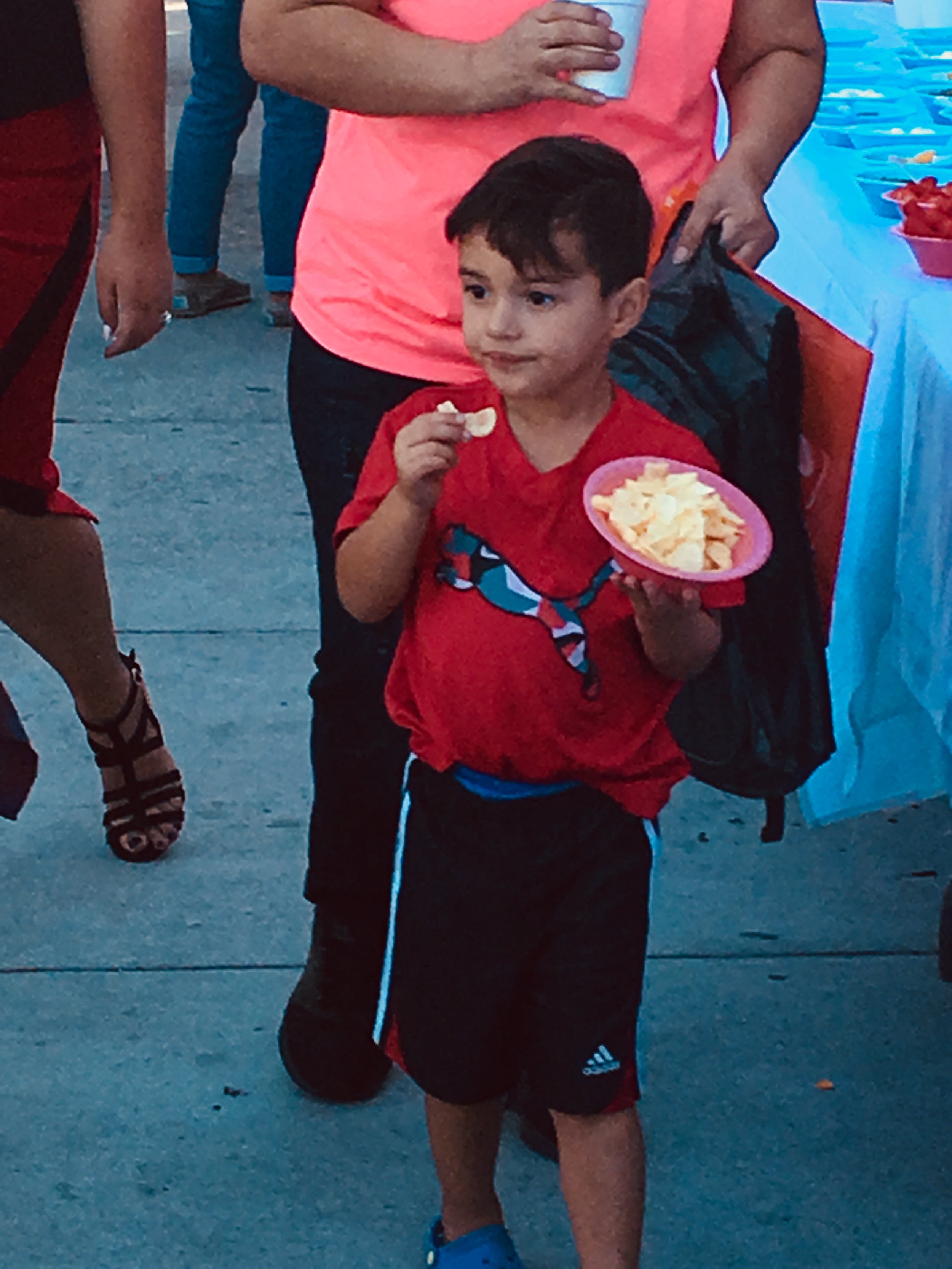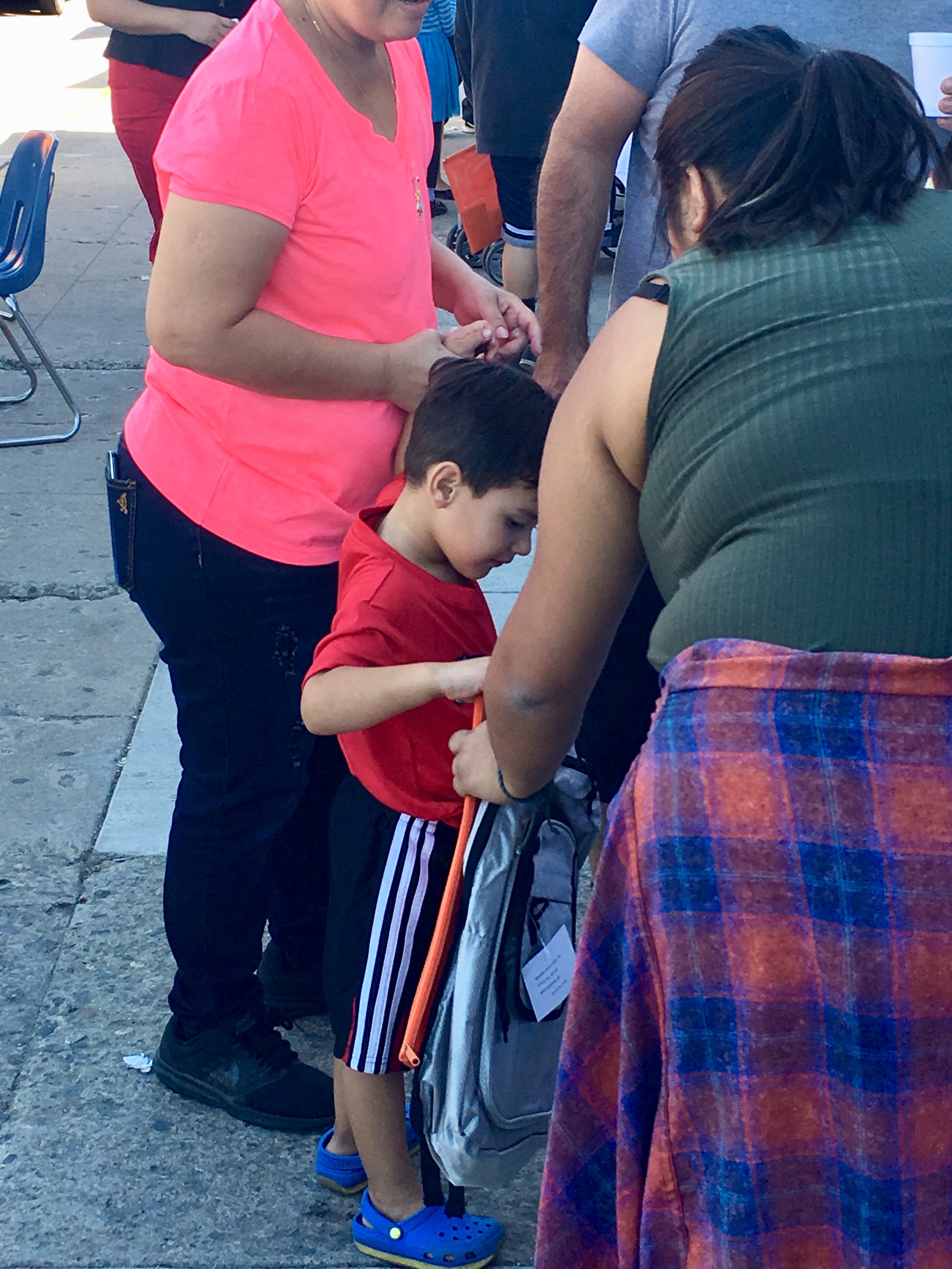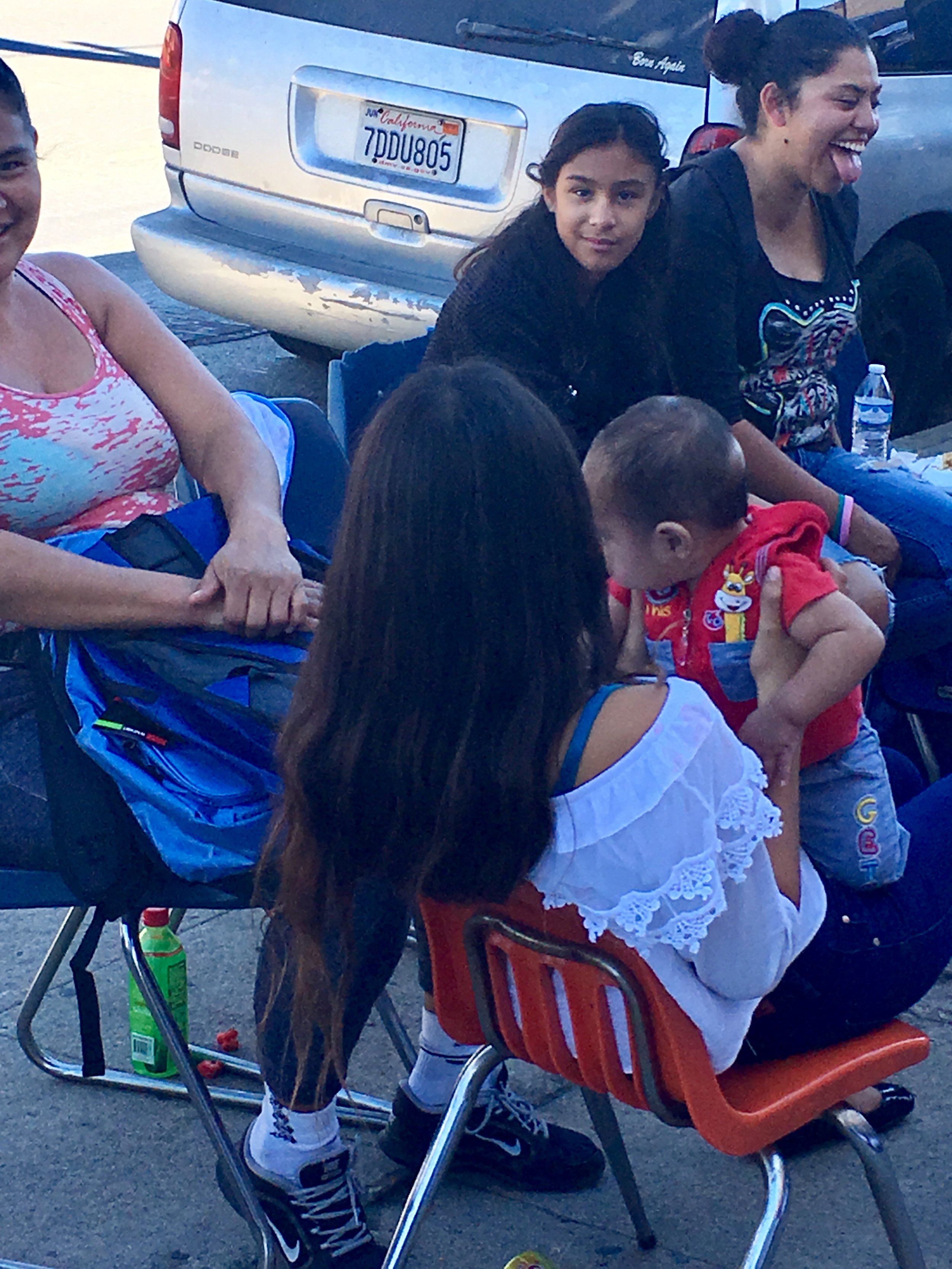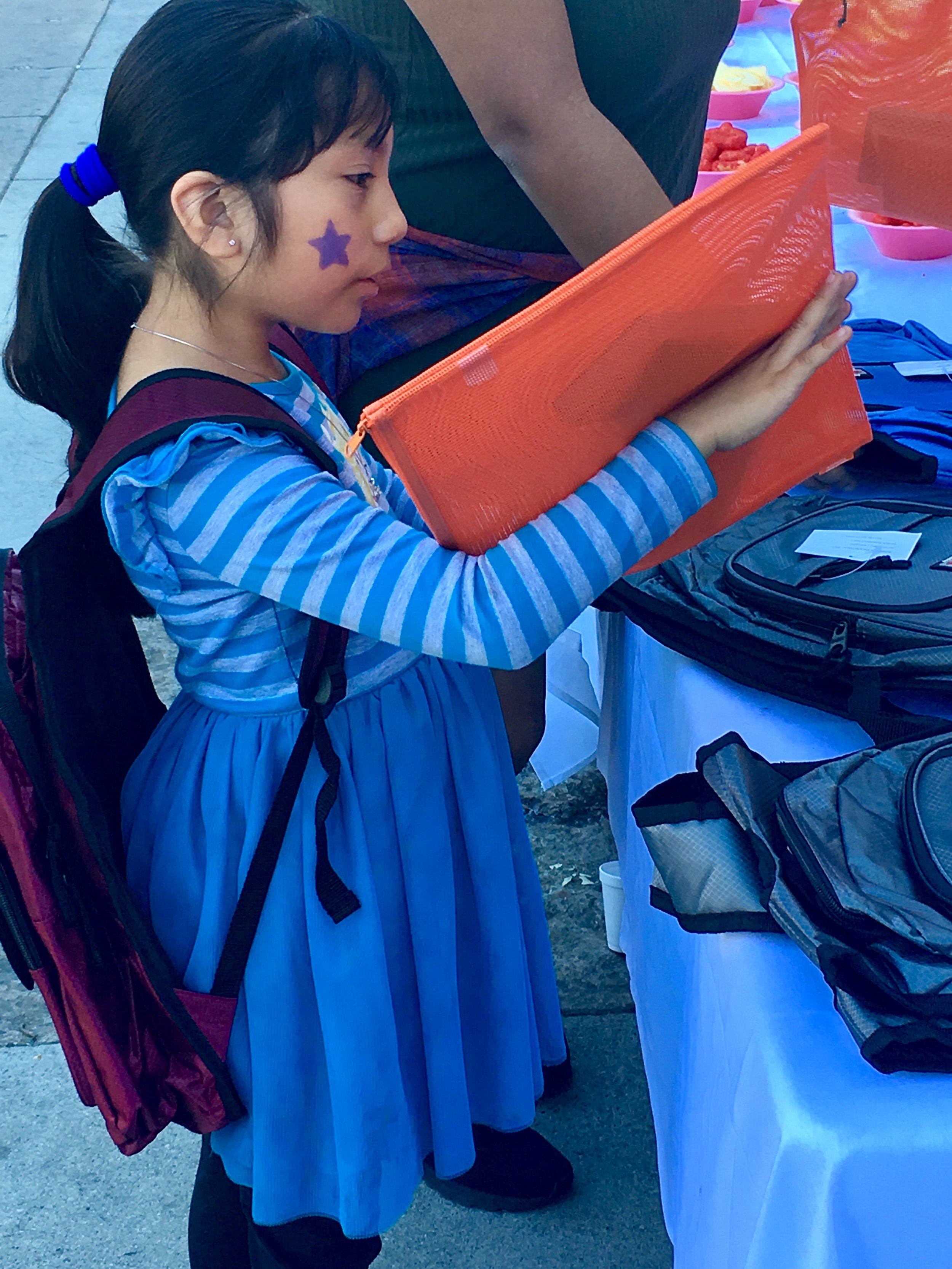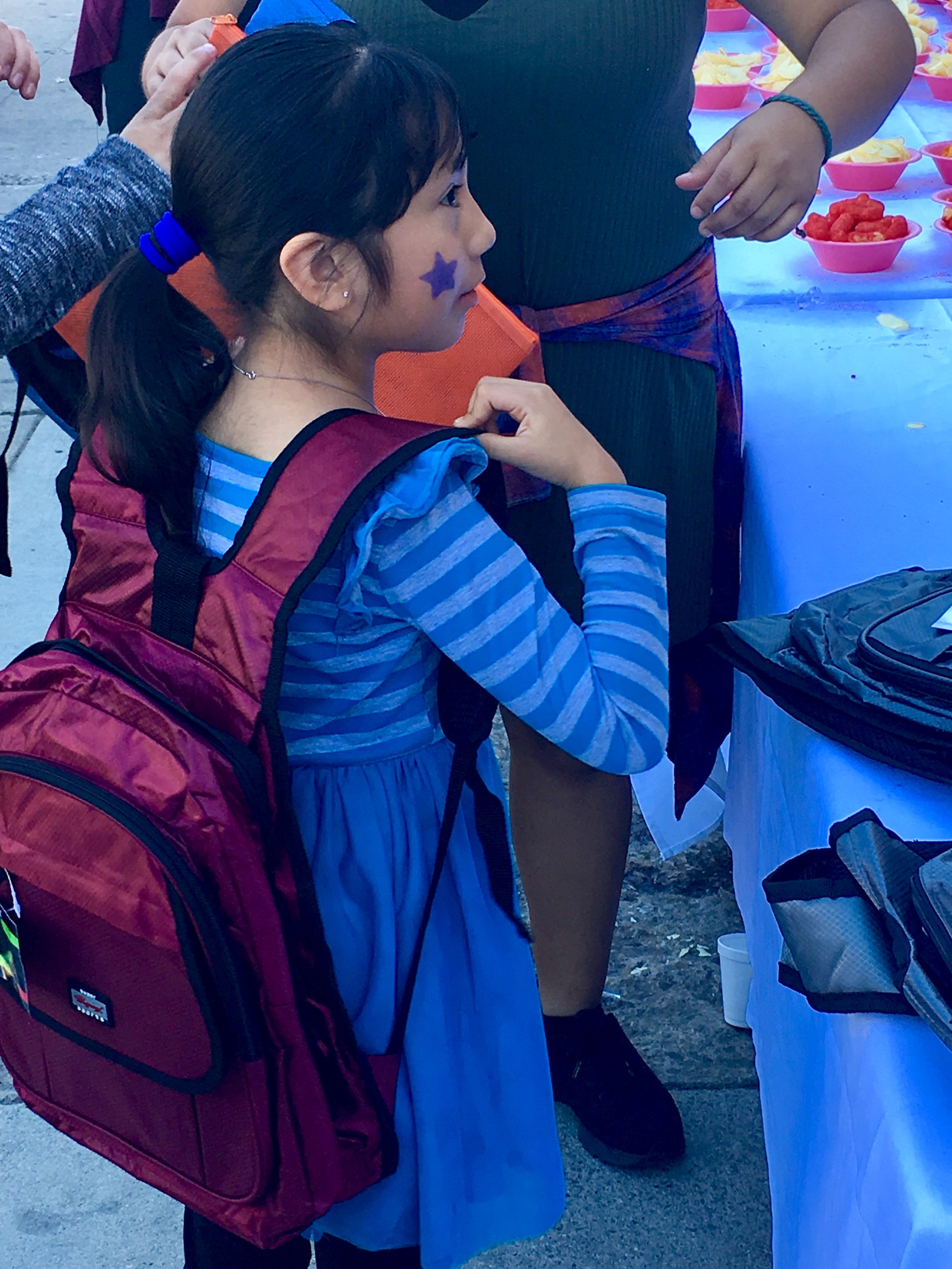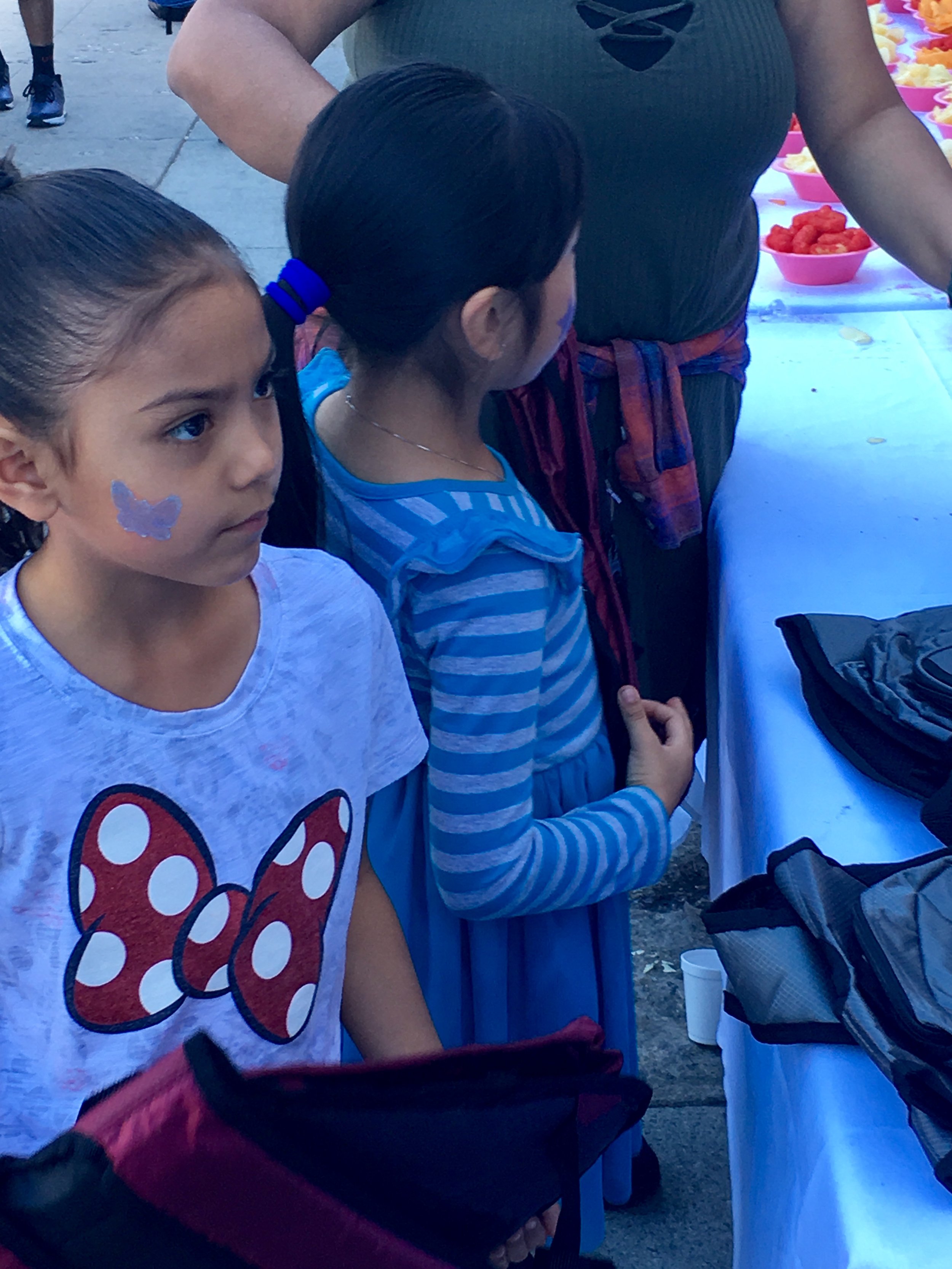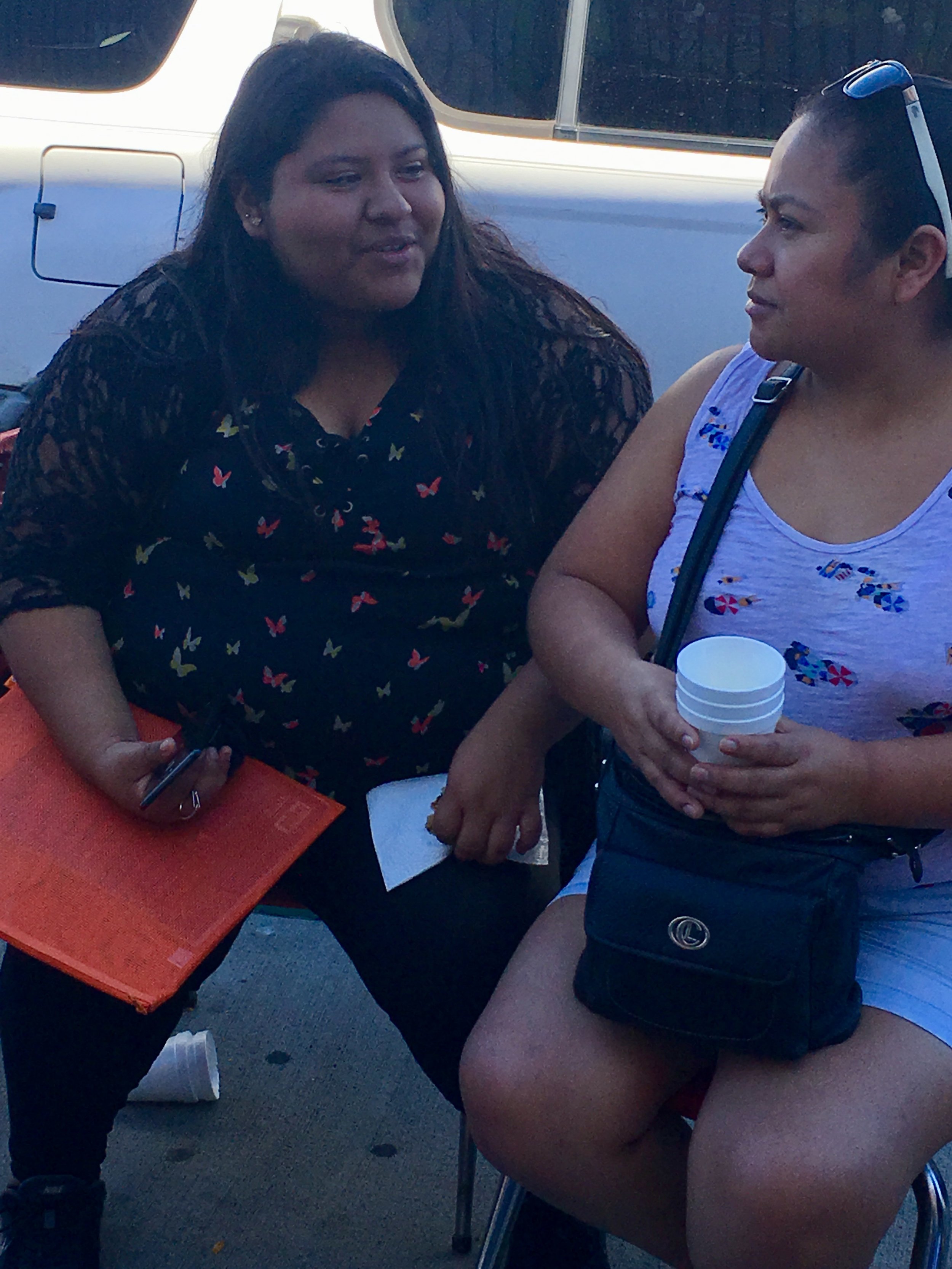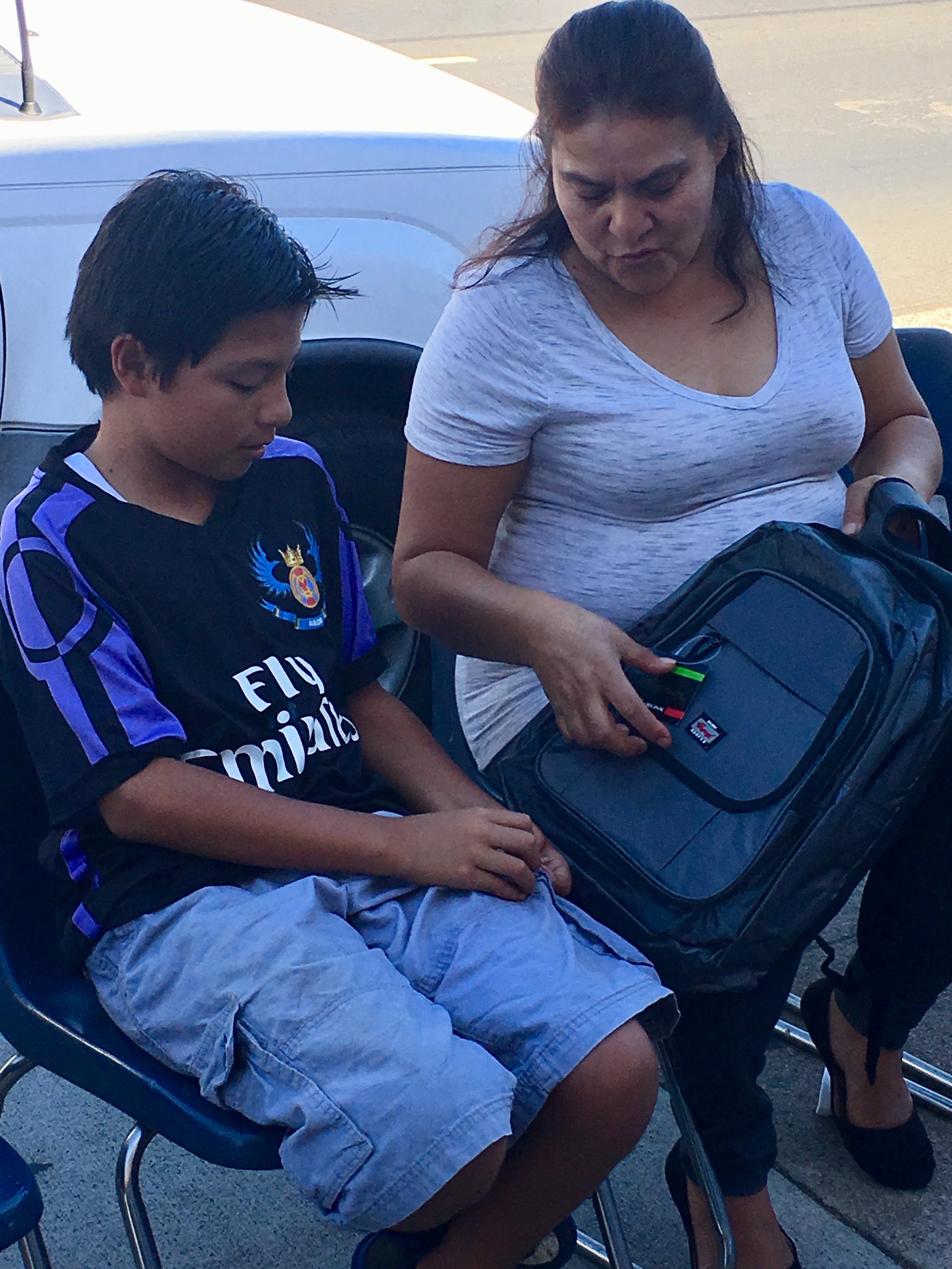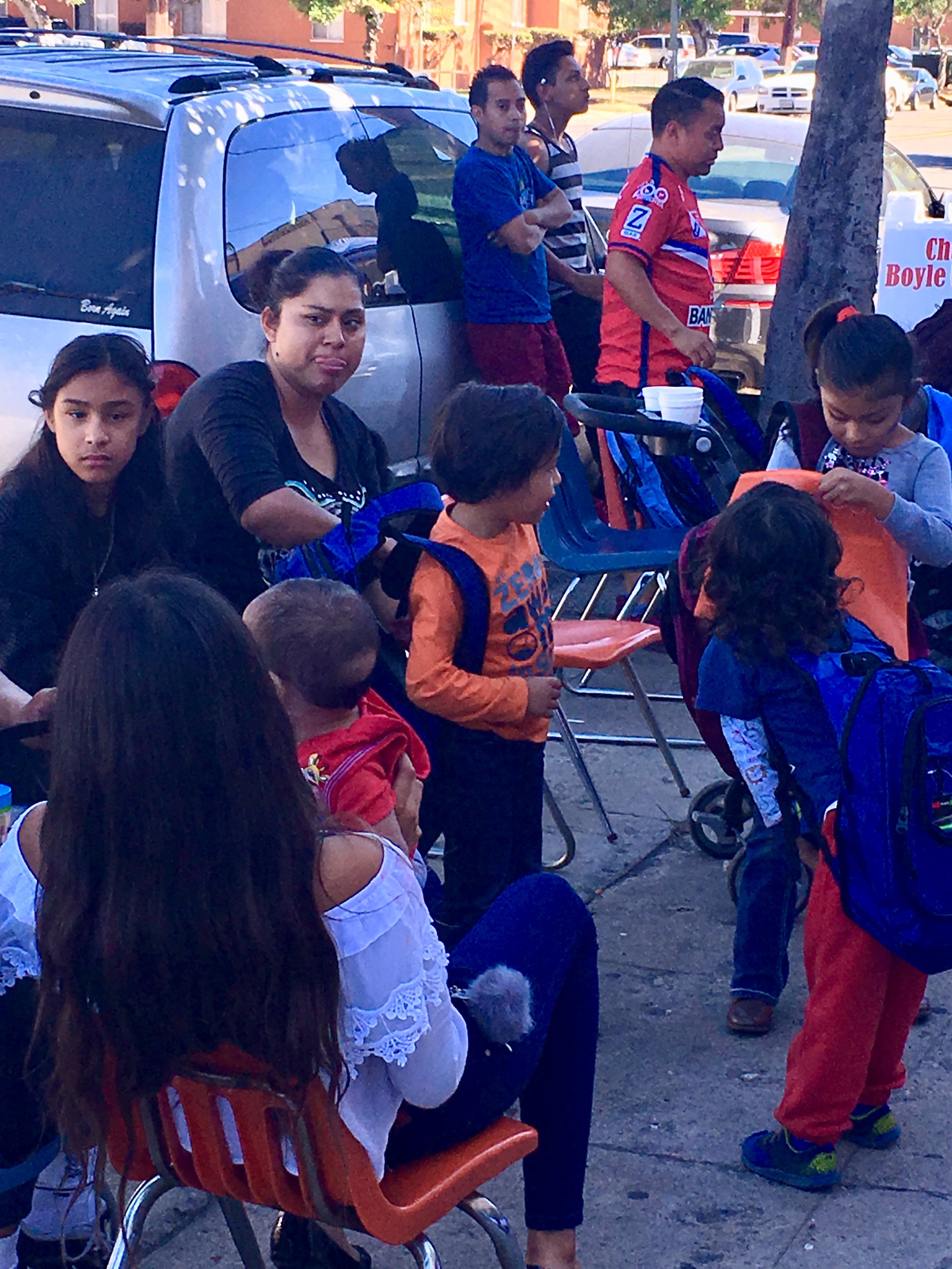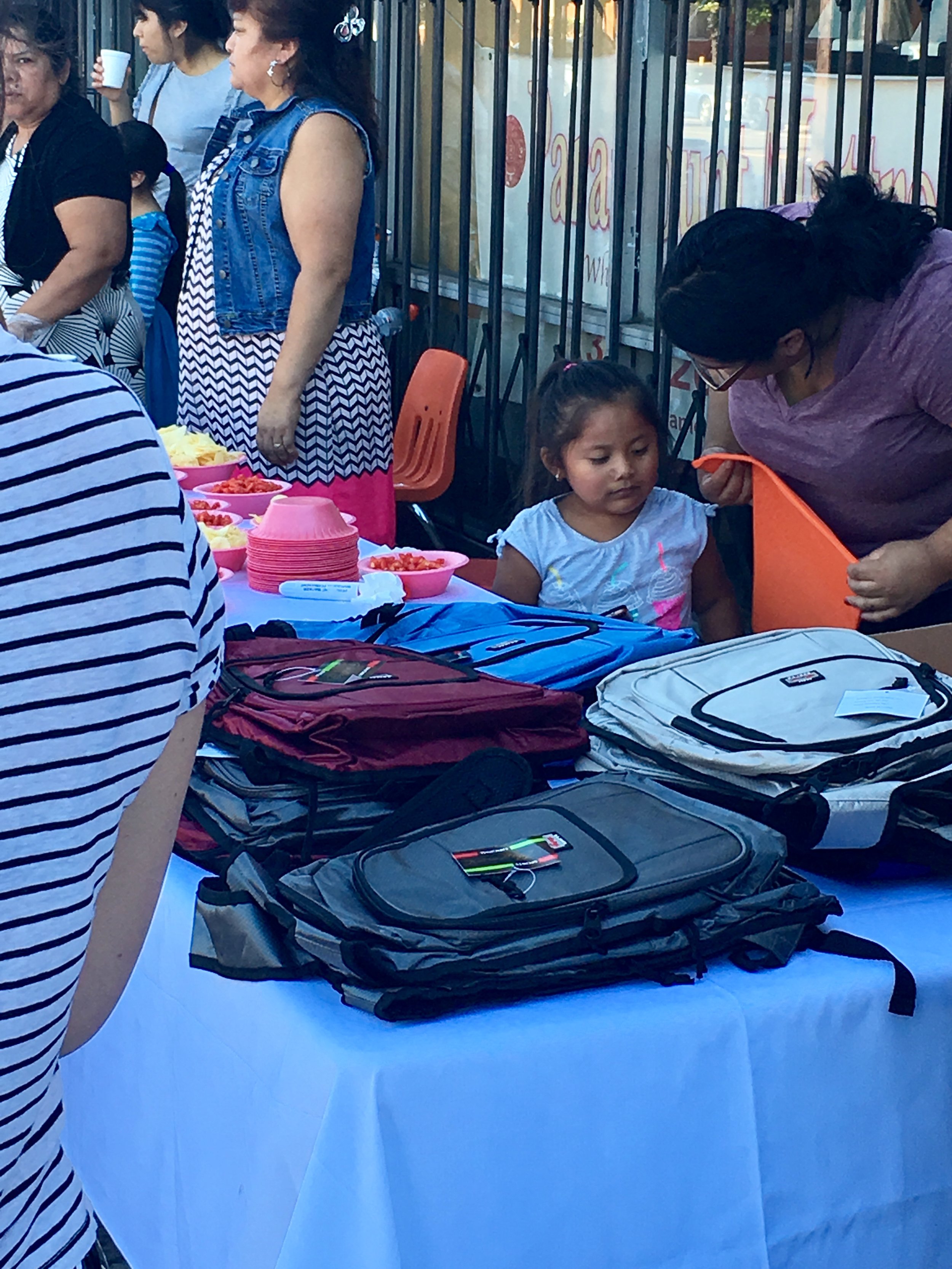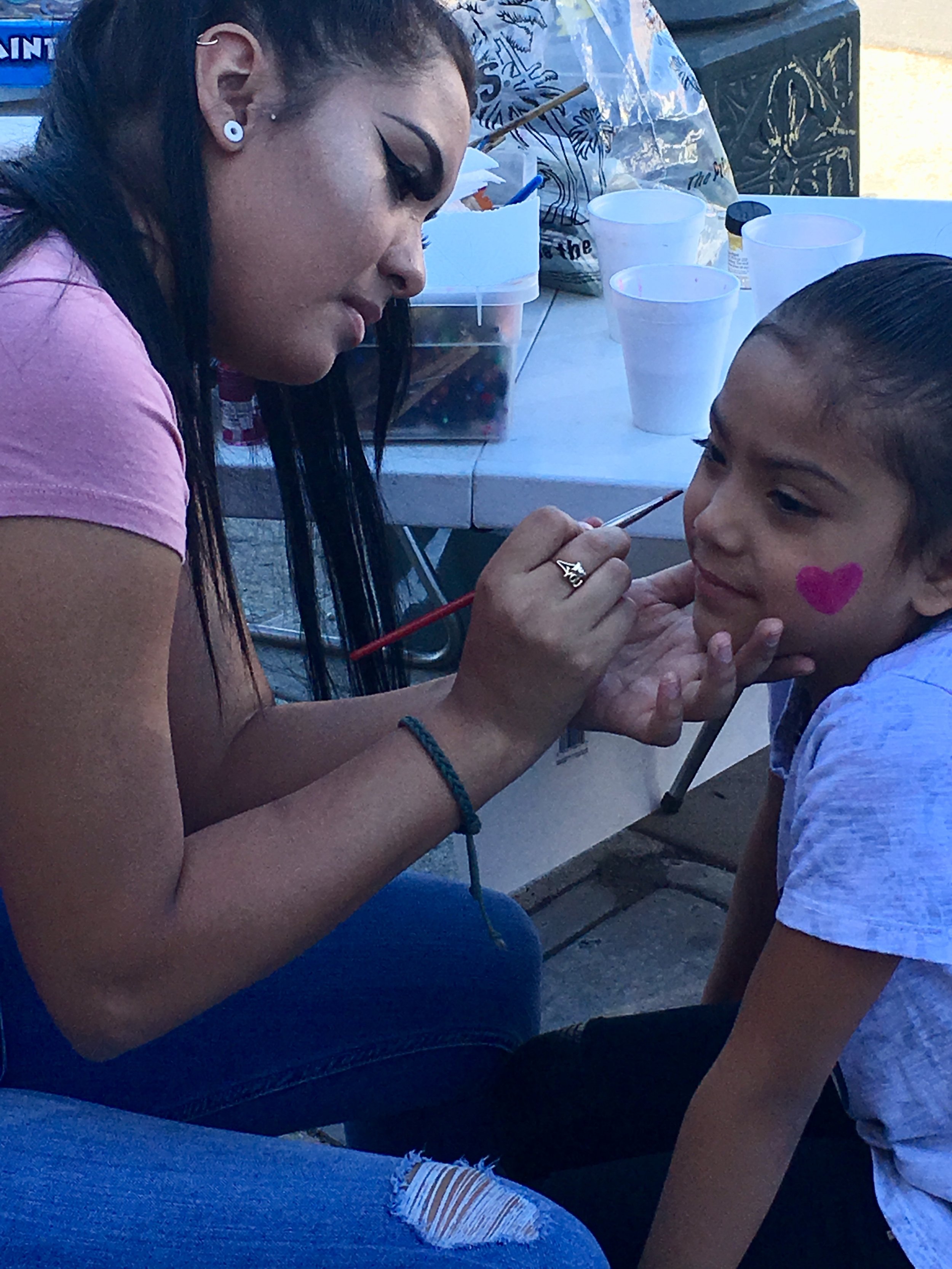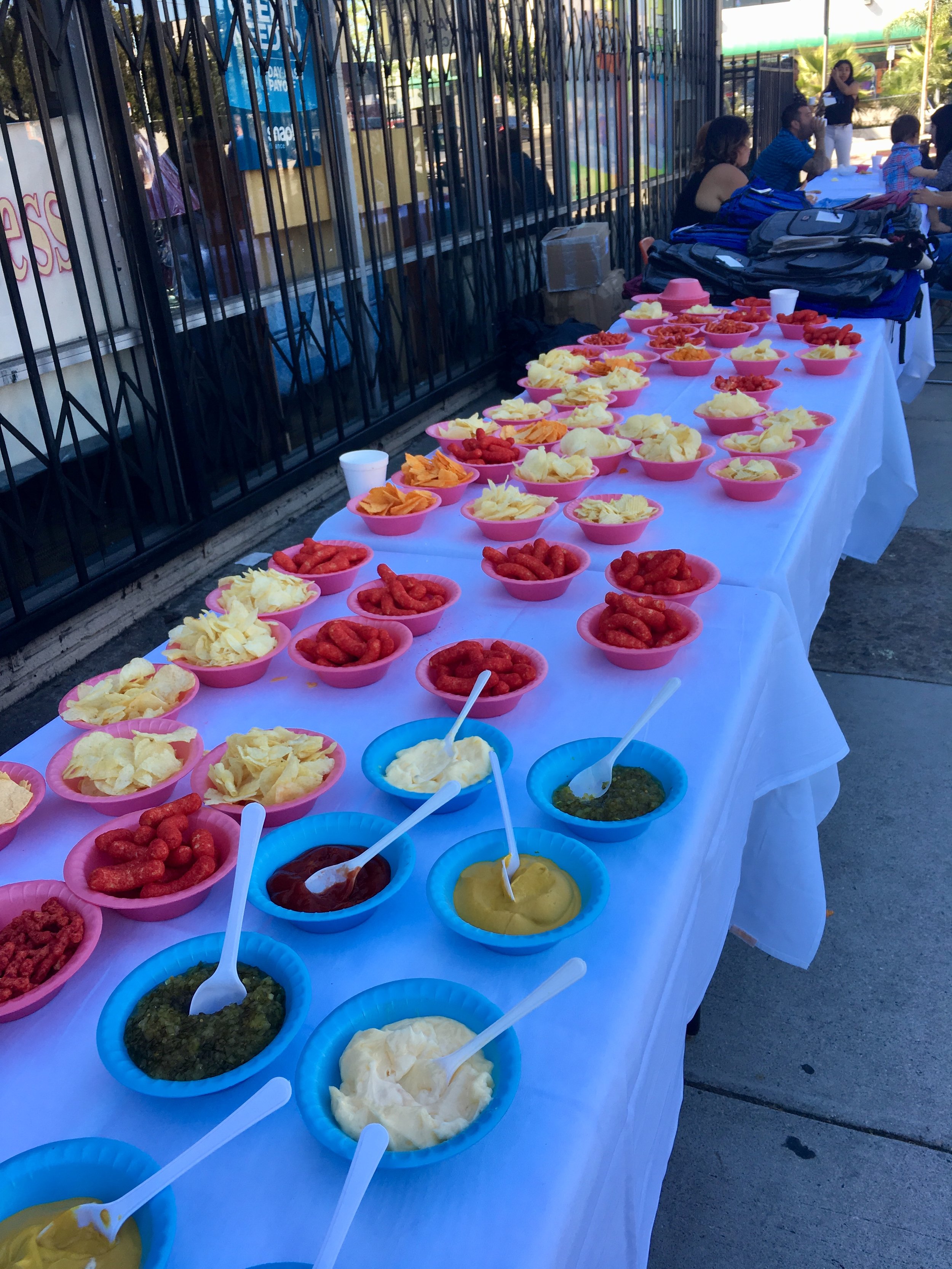In New Mexico, ministers Theresa and Guy Hocking have been volunteering at least once a week at a local hospice for many years.
I asked them about service and here is what they had to say:
Skyler: What does service mean to you?
Guy: Service is looking to see what needs done, and doing whatever needs to be done.
Theresa: Service is giving from the overflow. I personally have an abundant life on all levels (another "tithing works!" story), and have time and energy to give to others. While I would love to stay home and read and crochet, I am more powerfully drawn to being with others in the dying process, listening to their stories, hopefully having some laughs.
Skyler: What inspires you into service?
Guy: When I see things that I can do, I ask if it would be all right for me to do them (like washing dishes) or whatever … little jobs that I can do inspire me.
Theresa: Mom and Dad were my models. For them it was the Catholic Church and anything else that would benefit their six children. All of this is now reinforced with John-Roger saying "Service is the highest form of consciousness in the physical world." (Passage Into Spirit, p. 67). Also very inspiring was the way J-R lived his life, he gave and gave, of himself, of his wisdom and loving.
Skyler: How did you become involved with hospice? Why were you drawn to this service?
Theresa and Guy: We are involved with Mesilla Valley Hospice, Las Cruces, New Mexico, a non-profit residential hospice. We both had one parent plus Theresa's youngest brother who were under hospice care at the end of their lives. Hospice was nurturing for our dying relatives and the rest of us. We have long been friends with two impressive women, one who started hospice care in a small town, and one who helped found this hospice, 35 years ago as a volunteer nurse. Both are MSIA ministers, and one of these woman suggested volunteering for hospice.
And based on our experience with our family members, we did want to volunteer at hospice. We knew enough about this hospice from our nurse friend so that as soon as we retired and moved to Las Cruces, Guy applied to be a volunteer. Theresa finished MSS and DSS course work before applying.
We have served in a variety of ways. Guy has interviewed patients and then written their life story for the family to have after they pass. We have stayed with patients in their homes while their caretaker ran errands or had a break.
Together we run hospice errands which can be anything from taking medical folders between doctors and hospice, taking prescriptions to and fro a pharmacy, delivering supplies or prescriptions to patients in their homes somewhere in town or the county, taking envelopes to FedEx, going to the bank -- just about anything that needs to be driven somewhere. Ideally we remember to plant Light columns as we run errands.
We have a patient that we visit once a week - and this can be in the home, in an assisted living facility, or a nursing home. We've had patients who want to die, those who are afraid to die, those who are a bit befuddled about why they are on hospice care. Everyone is unique -- we had one patient who could not hear Theresa so Guy repeated everything Theresa said in his deep voice. Sometimes a half hour is enough for them, and one time our patient chatted for three and a half hours, but in general, we visit for one hour. Guy always checks any oxygen concentrator because sometimes the patient has inadvertently disconnected their oxygen tubing by tripping over it. When we get home, we immediately write an email report that our volunteer coordinator passes on to the nurse and social worker. We frequently see or hear something that can be helpful to the hospice staff.
One of Guy's long time patients became a friend. Guy visited once a week in the home for months and then when his wife could no longer provide adequate care, the patient was admitted to the residential hospice, and for many weeks Guy visited him every day, 7 days a week.
One memorable experience that Theresa had was with a patient with COPD, very afraid of dying. I knew she was church oriented, so one time when she was distraught, I asked if she had a guardian angel, yes, and how about requesting their assistance? It worked, and apparently she could see the angel, who had comfort, advice and was going to deliver more oxygen soon, but first the lady was to go to sleep -- which she did.
Theresa: I also spend one afternoon a week at the residential hospice. First I check with the nurses and ask who might want company. It is somewhat common that some patients do not have any visitors nor do they have family close by - we know of patients whose home was 100 miles away. I've taken patients out to an enclosed garden area to smoke (why stop now?), held their hand for the three hours, helped them do their crafts which the family brought for them, take them for wheel chair rides or out to the beautiful koi pond garden, but mostly I am listening to their stories. There was one patient who could not move his arms but he was always thirsty, so I set my phone timer for 30 minutes to help him drink something by holding the straw to his mouth. We are also trained to feed patients who need assistance; however this frequently turns into a conversation time rather than eating time.
Guy: I enjoy the feeling of accomplishment, doing lots of little jobs, and seeing them done feels good. Yes, we get a bit attached to our patients but also it is easy to let them go, and on to the next patient with entirely different stories. Sometimes we attend the funeral or burial service, especially if we have been with them for many months.
Skyler: What advice would you give to someone wishing to be more involved in service, but perhaps doesn't know where to start?
Guy: Don't try to do everything, just do what you can do well.
Theresa: Know yourself. Can you work with the dying, the homeless, immigrants learning language, or kids learning to read? There seems to be a volunteer job for any ability or interest. Some of these need a special talent -- language skills, patience, fund-raising or grant writing skills, listening skills. Theresa says she cannot work gracefully and neutrally with the homeless or those in poverty but working with those on "the dying path" is easy for her.
Learn to take care of yourself first, as a habit, before taking care of others. When volunteer coordinators learn your talents and dependability, there will be many requests. It is okay to say "no" -- hard to do, but okay to do. Friends and associates often know the organizations that need help. Cities might have volunteer fairs. There might be a section of the daily paper in smaller cities that list volunteer opportunities. Ask around, there are many opportunities. While we may not serve for the rewards, inner rewards happen anyway.
Thank you, Theresa and Guy for sharing your ministries and service. Your sharing enriches our collective experience and understanding of serving and giving.
If this has inspired you to share your ministry or service in future HeartFelt Global Network articles, get in touch! Email Skyler@heartfelt.org
"The highest form of consciousness is service. And the highest form of service is selfless service." – John-Roger, D.S.S.
We are one in our loving for one another.
In loving,
Skyler



















